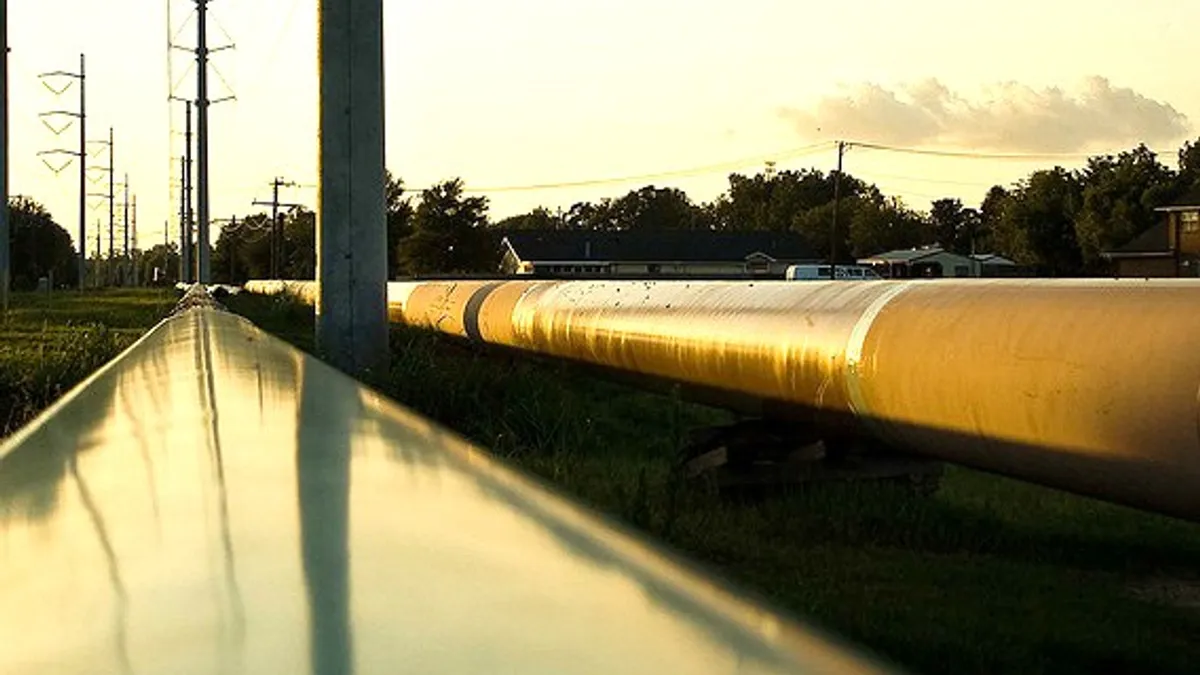Dive Brief:
- Three environmental groups have asked Pennsylvania regulators to reconsider approval of Sunoco Pipeline LP's Mariner East 2 natural gas liquids (NGL) pipeline, which is planned to stretch more than 300 miles across Pennsylvania and part of Ohio.
- The Pennsylvania Department of Environmental Protection (DEP) approved the project on Monday, but advocacy groups claim the agency failed to address the negative environmental impacts of the project.
- The Mariner East system moves propane, ethane and butane from the Marcellus and Utica shale areas in western Pennsylvania, West Virginia and eastern Ohio to markets in Pennsylvania.
Dive Insight:
Three environmental groups have asked Pennsylvania to reconsider approval of the Mariner East expansion, arguing the energy company was not entirely forthcoming in its application.
"Sunoco’s permit applications were woefully incomplete, inaccurate, and contradictory, and DEP’s review and approval was utterly inadequate,” Clean Air Council Executive Director Joseph Minott said in a statement. The decision was made too hastily, he said, and will allow Sunoco to violate the law.
"What DEP has authorized with these permits is the destruction of Pennsylvania streams and wetlands, the endangerment of the public, and great damage to both public and private property," Minott said.
The approval comes after Sunoco won a highly contested lawsuit filed by landowners arguing against the company using eminent domain to site their pipeline through private property, Philly.com reported.
The first phase the Mariner East project consisted of interstate and intrastate propane and ethane service. The second, known as Mariner East 2, will expand the total takeaway capacity to 345,000 barrels per day for interstate and intrastate propane, ethane and butane service, according to Sunoco. The project is expected to commence operations in the first half of 2017.
The Clean Air Council was joined in its appeal by the Delaware Riverkeeper Network and the Mountain Watershed Association. The groups say that since 2002, Sunoco has paid over $2 million in fines issued by the Pipeline and Hazardous Materials Safety Administration.
Environmental groups and landowners have grown increasingly vocal against major pipeline infrastructure projects as companies seek to move natural gas to big markets in the Northeast and Mid-Atlantic. The Northeast in particular has suffered from natural gas constraints in the past due to high winter demand and insufficient supply.















